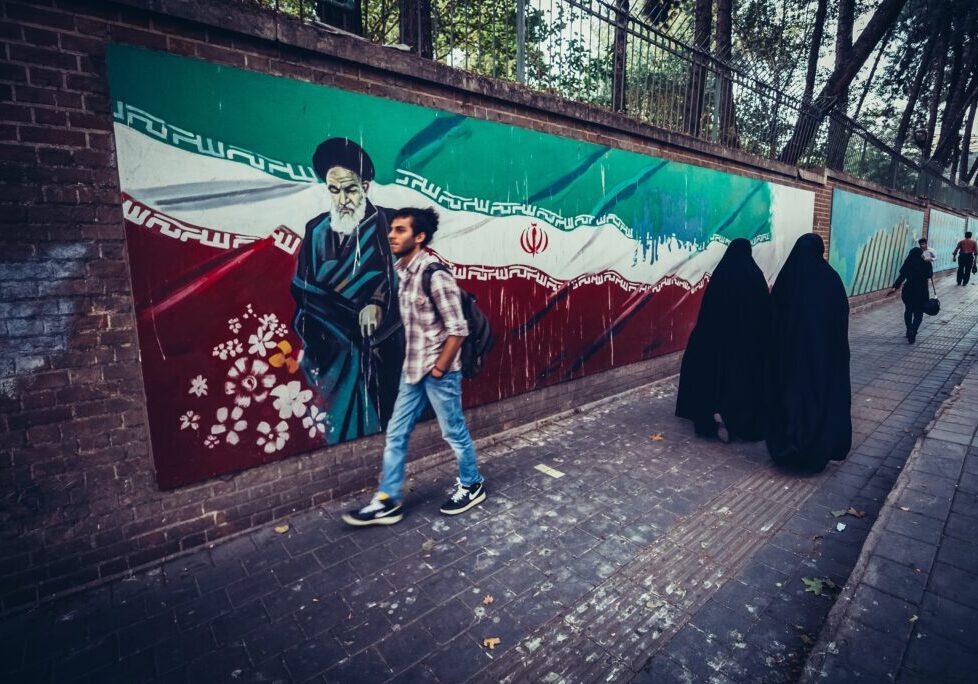Australia/Israel Review
Editorial: Once in a Generation
Feb 28, 2011 | Colin Rubenstein
Colin Rubenstein
One would have to be hard-hearted indeed not to be transfixed and inspired by the historic scenes sweeping the Middle East. The almost surreal pictures of crowds in the streets crying out for democracy and freedom, and courageously staring down violent, powerful and entrenched autocracy, cannot help but stir feelings of hope and admiration.
Anyone, however, who thinks democratic futures and full human rights are now guaranteed for Tunisia, Egypt, Bahrain or Libya, or will be achieved without more persistence, struggle, setbacks and possibly bloodshed, misunderstands the region. We still have no idea where this unrest will end and can only hypothesise where the next revolution might begin. In Tunisia and Egypt, it remains unclear if the revolutions will do more than simply rotate the faces running the regime. In Libya, while it looks unlikely Gaddafi can hold on for long, no one can be sure, nor have any clear idea who or what might succeed him.
Moreover, in all the countries affected by the unrest, Islamist forces will be determined to bring about radical theocracy in the short or, more likely, long term. Thanks to the repression of all liberal forces by autocrats, Islamist groups remain generally the only opposition force left – possessing superior organisation, determination and a reputation for incorruptibility. Their potential for achieving domination, non-violently or otherwise, thus both smashing democratic hopes and moving vast swathes of the region into the radical axis dominated by Iran, should not be underestimated. Needless to say, this would be a calamitous disaster for the region and beyond.
The signs are often mixed and confusing. A recent poll by the Washington Institute for Near East Policy on Egyptian attitudes to the protests gives grounds for optimism, showing a focus on domestic reform and little desire for Islamism.
Yet, Mohammad ElBaradei, a key opposition figure and supposed moderate, has strongly hinted that Israel’s peace treaty with Egypt is now conditional on additional Israeli concessions to the Palestinians. Disappointingly, another major liberal figure, Ayman Nour, has called the treaty “dead”.
Nor, as sometimes claimed, were the protests free of explicit anti-American or anti-Israel overtones or conspiracy theories. Pockets of antisemitism also clearly featured.
Although the protests have been accelerated by Facebook, Twitter and the internet, it is too simplistic to ignore the individual character of each revolt. While there are similarities, such as demands to end rampant oppression, corruption and perverse cronyism, each uprising must be assessed on its own terms.
In Egypt, the military was central to Mubarak’s regime and his departure. Meanwhile in Libya, the megalomaniac Gaddafi is brutally unleashing mercenaries and his air force to inflict mass casualties.
In Bahrain, the rebellion by the majority Shi’ite population reflects their natural resentment at being ruled by the Sunni minority. Yet, many also fear that majority rule in Bahrain will be another victory for Shi’ite Iran and its regional hegemonic ambitions.
Meanwhile, in Iran itself the protests have reinvigorated the Green Movement, until now violently suppressed by the regime’s brutality since 2009. Tens of thousands of protesters in Iran managed to take to the streets of Teheran and other cities despite ruthless crackdowns, riot police, and blocked websites even as Iranian leaders hypocritically praised the “noble” demonstrators in Cairo as heirs to the 1979 Iranian Islamic revolution.
At base, what is happening in the Middle East has huge potential to dramatically transform the region and the world for the better. But the dangers are also immense. While outsiders have only limited sway, governments of goodwill should do whatever they can to assist the Arab democratic movements to achieve their positive potential. The alternative worst-case scenarios would not only greatly threaten Western interests, but witness the inspiring local courage and democratic fervour once again submerged into dictatorships of one type or another.
In this regard, the performance of the international community leaves much to be desired. Pronouncements from the Obama White House have often seemed somewhat confused and improvised. European governments have been no better.
But predictably disappointing has been the performance of the UN and especially the UN Security Council. The UN’s silence has been deafening. It took the Security Council until Feb. 22 to discuss any aspect of the crisis in the Middle East or issue any statements or resolution. When they finally did meet to discuss the barbaric violence and gross human rights violations in Libya, the result was a toothless expression of “grave concern” and a call for an end to violence.
Before taking this non-action, the Security Council had been busy with other concerns. As the streets of so many Middle Eastern capitals were running red with the blood of butchered protesters, the principal response by the international body tasked with ensuring and protecting global peace and security was to hold a vote on a Security Council resolution that condemned – wait for it – Israel and its settlements, which America somewhat reluctantly vetoed.
Sadly, this is actually unsurprising. The UN’s appalling current performance once again displays its moral bankruptcy and political irrelevance in resolving conflicts and advancing human rights in the Midde East. It routinely ignores Arab dictators killing their own or other subjects, and instead devotes vast amounts of effort to passing resolution after resolution in all UN bodies to condemning the slightest perceived or imagined Israeli transgression.
But the events in the Middle East over the last several weeks probably represent a once-in-a-generation turning-point likely to rewrite the international political map. The stakes are simply too high for business as usual, at the UN, in Washington, Canberra or anywhere else. For our political leaders, it’s time to step up through a range of serious measures to strengthen the forces of moderation and democracy and undermine the agents of extremism and oppression.
Tags: Middle East






